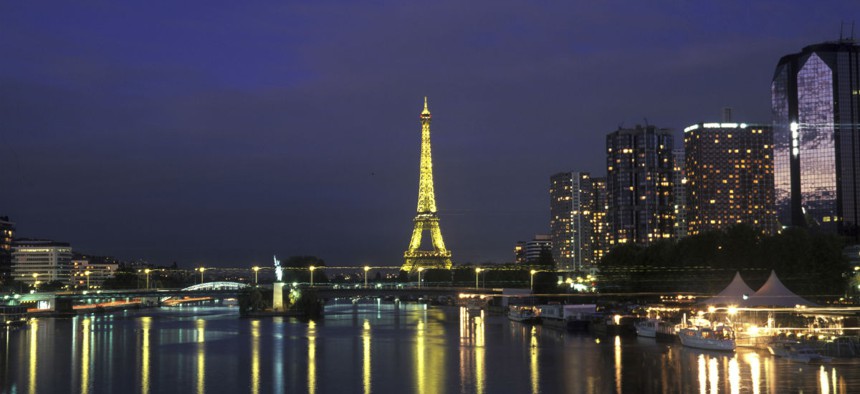
Thinkstock
Remembering What’s at Stake
When the shouting about how to handle ISIS starts, let’s not lose sight of our humanity.
Like a lot of people reading this post, I’ve spent a good part of the past weekend trying to process what happened in Paris on Friday night (and Beirut a few days before and the apparent bombing of a Russian airliner over the Sinai a few weeks before that). I know that’s not the kind of opening you’ve come to expect in these Mindful Mondays posts, but that’s what’s on my mind as I write this, and it doesn’t feel honest to write about something else today.
Much like 9/11, I imagine a lot of people will remember where they were when they heard the news of the shootings and bombings in Paris. I was in Cancun on a business trip. I had just finished a day of delivering workshops for a client company management conference and was in my room getting ready to end the day with an hour or two on the beach. CNN was on the television and the first uncertain reports were coming in about something going on in Paris. When I came back to the room 90 minutes later, the magnitude of the horror was all too clear.
It’s always a surreal experience to process news like that that came out of Paris. It was particularly surreal to be following it from a beach resort in Cancun. Earlier in the day, I had been thinking to myself that the world would be a nicer place if everyone treated each other the way the staff at the hotel I was staying in treated their guests. It wasn’t so much the service, although that was great. It was the way they connected with the guests. Every staff member who passed by me made a connection with a smile, eye contact and a greeting of “buenos dias” or “buenas noches.” Being the observer I am, I noticed how the staff set the tone for everyone on the property. Their grace and warmth spread to the guests. Everyone in the building was more pleasant to each other as a result of their example.
So, I’ve spent a lot of this past weekend trying to square the better angels of human nature that I observed in Cancun with the barbarity that we’ve all witnessed in Paris. The best piece I’ve read on the travesty was an essay from Simon Schama, a historian at Columbia University and columnist for the Financial Times. In his column, “Proclamation Against Isis, Party of Death,” Schama put words to the jumble of thoughts I had been trying to sort out:
“But the ‘carefully chosen targets’ of the Islamist militants of ISIS were exactly the places where we go to pursue our little share of weekend pleasure: the football ground, the music hall, the café, streets such as those around the Canal Saint-Martin where people stroll and sit, joke, gossip, flirt.
Suddenly these places, characterised by the pleasure-exterminators of ISIS as dens of ‘prostitution and vice’, seem bigger than mere resorts of casual entertainment. Instead, they seem to be at the heart of the urban innocence, emblems of the openness that the assassins of joy want to turn into a graveyard where sociability is patrolled by the morality police.”
Schama goes on to define what the battle against ISIS and other perpetrators of violent extremism is about – the principles “enshrined in the words of those who first articulated the imperatives of free speech: religious toleration; the right to civil peace; resistance to tyranny and theocracy.”
In the weeks and months to come, there will undoubtedly be shouting and arguments about the best way to respond to the threat posed by ISIS. When the noise machine starts, it will likely be difficult to remember what’s at stake. I’m grateful to Simon Schama for so clearly defining that.
Events like the one in Paris can leave us feeling helpless and confused about what we can do in response. There aren’t many easy answers to that, but one is to remember what’s at stake and do our best to act toward others in a way that nurtures and sustains the kind of society that the vast majority of us want to live in. That feels to me like a good way to approach this coming week and the weeks beyond.







